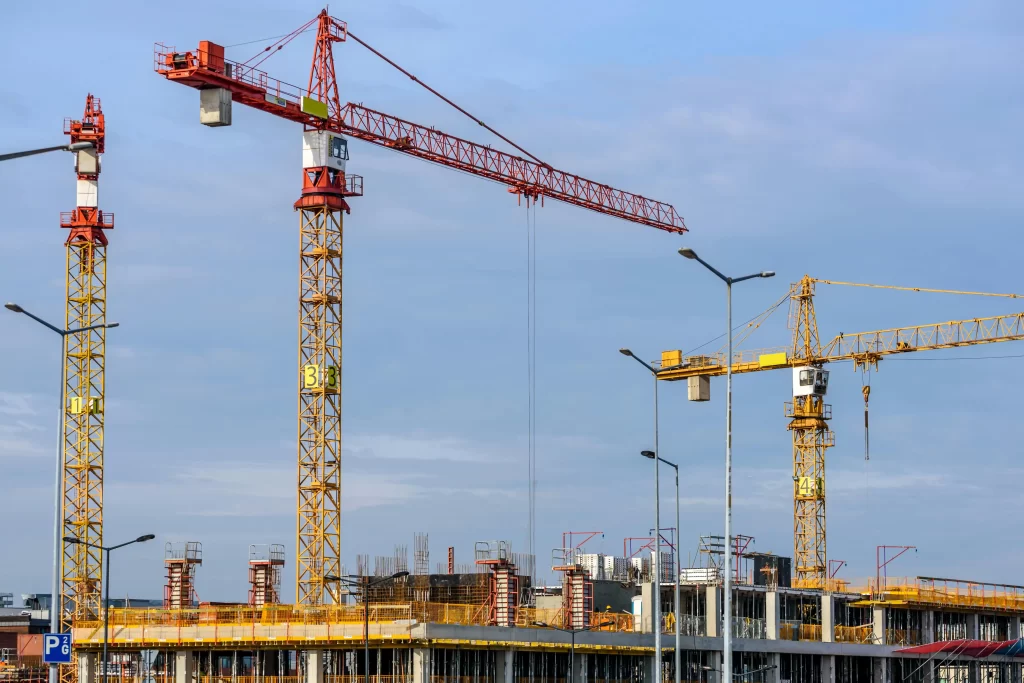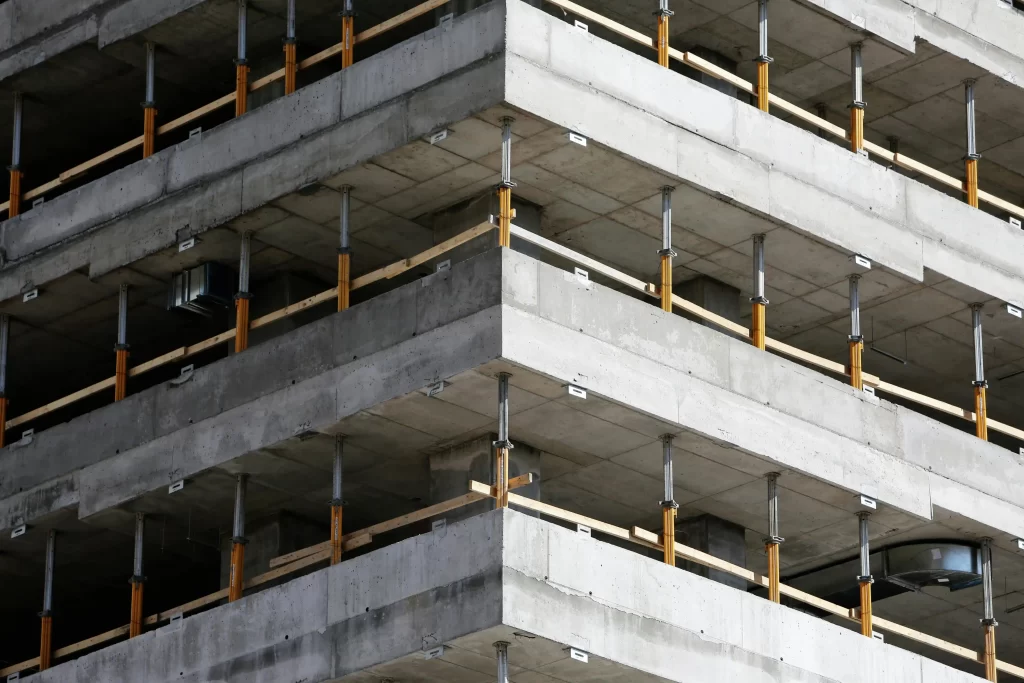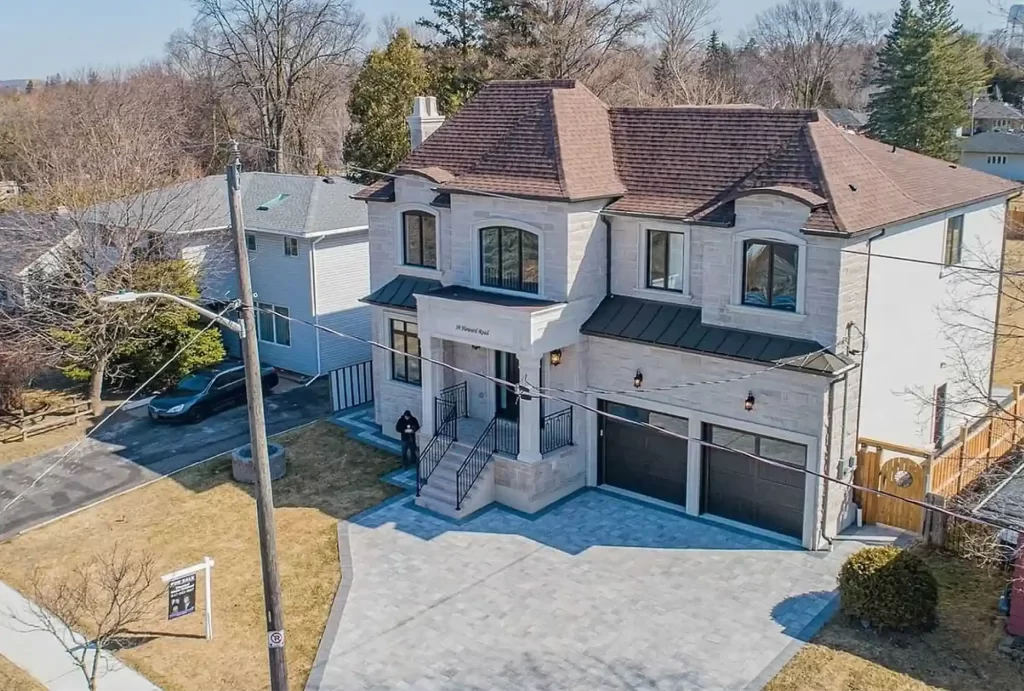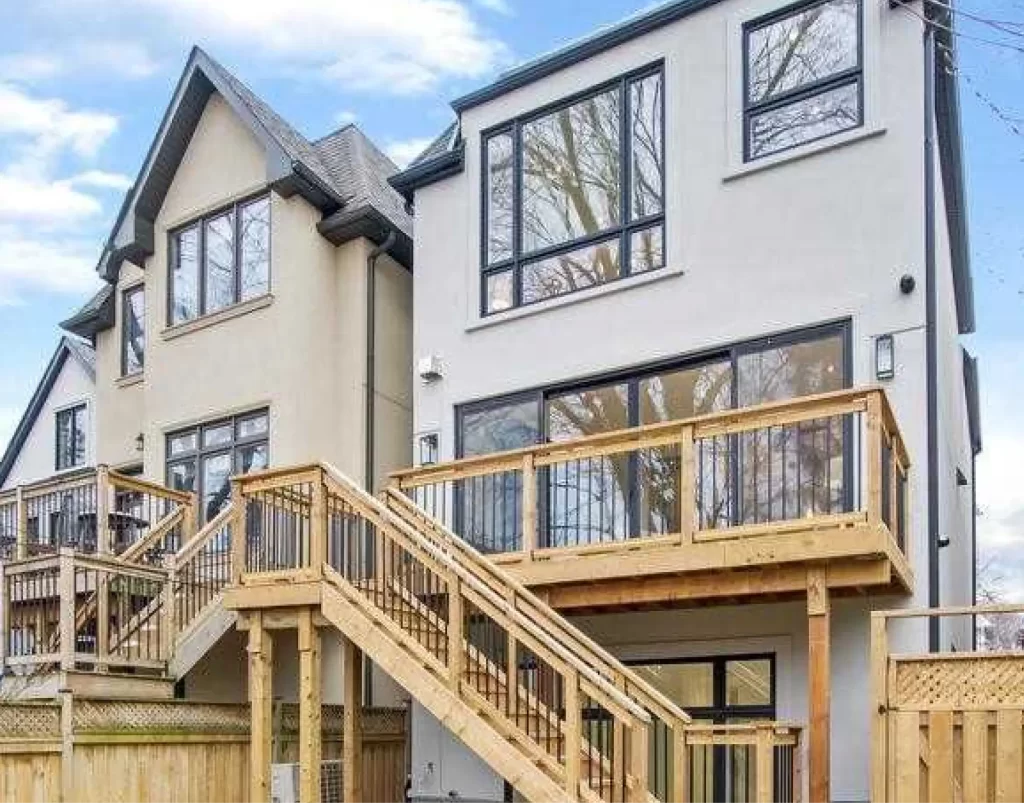Construction Financing
Build Your Vision with Tailored Construction Financing in Toronto
Some conditions may apply. Rates may vary from Province to Province. Rates subject to change without notice. Posted rates may be high ratio and/or quick close which can differ from conventional rates. *O.A.C. & E.O
Esi Ghassemi - Mortgage Broker at Centum Financial Services Limited Partnership - Brokerage # 13054

What Is a Construction Mortgage?
A construction mortgage (or construction loan) is a short-term loan used to finance the cost of building a new property. Instead of receiving the full loan amount upfront, funds are released in stages (called “draws”) as the construction progresses. This gives builders the flexibility to access capital when they need it, while protecting the lender.
At ESI Mortgage, we offer construction mortgages in Toronto that are customized to suit projects of all sizes, from single-family homes to multi-unit residential developments.
Who Can Benefit from a Construction Loan?
You may need a construction mortgage if you are:
Building a custom home on a vacant lot
Tearing down and rebuilding an existing structure
Developing a multi-unit residential building
Completing major renovations or additions
A builder or investor managing multiple construction sites
How Does a Construction Mortgage Work?
Construction financing is similar to a second mortgage where the value of the property is of future value. This type of loan is usually interest only payments and is given out in different stages during the different stages of the completion of your home.
The payouts are referred to as “draws” on a progression advance basis as you move along in various levels of completing the construction of your home. If you do not own a land and are in the process of buying the land, the first “draw” is sometimes provided to help with the purchase of the land. If you own a land, then the first advance on your loan could be given out as equity take-out.
These interests only loans are short term lasting one to two years with a typical hold back of 15% per draw as security for the lender.

How many draws exist in a construction mortgage?
There are usually 4 stages of installments during the build of a home until it is completed or close to completion. A home inspector will visit the property during each of the stages to ensure that the progression is on schedule. The funds are released by the lender after the inspector submits a progress report to the lender notifying them of the progress. Below are the 4 stages of installments explained in more details:
1
Stage 1
is called “The Foundation Draw” that is released when a land is purchased and construction of the home has begun. This draw is only released when the land has little to no mortgage on it. If there is still a mortgage on the land the first draw is received when the house is about 35% complete. Therefore, you are responsible to cover the costs for completion of the first 30 to 50% of your house.
2
Stage 2
is referred to as “The Lock-Up Draw”. In this stage the funds will be received when the home is approximately 30-50% complete. This entails that the foundation is laid and the framing, windows and doors are installed. This is when you can “lock up” the house at the end of the day.
3
Stage 3
is called “The Drywall Draw”. In this stage, the draw will be paid out when the home is roughly 65% to 75% complete. Furthermore, at this stage the heating system is in place and the home is ready for appliances to be put in.
4
Stage 4
is referred to as “The Completion Draw”. This is the stage where the house is complete or near complete. This means that the electricity and plumbing is in working condition and the home is liveable. All permits and contracts have also been signed and completed.
Our Partners



















Why Work with ESI Mortgage?
As trusted mortgage brokers in the GTA, we don’t just connect you to lenders — we become your partners in the financing process. Here’s what sets us apart:
Transparent & Efficient Process
From pre-approval to closing, I provide clear guidance at every step. I aim to simplify the mortgage journey and empower you with the right financial decisions.
Client-First Approach
I work for you, not the banks. I prioritize securing the most competitive mortgage rates and terms while ensuring a smooth and stress-free process.
Personalized Mortgage Solutions
No two financial situations are the same. I focus on crafting customized mortgage strategies to align with your short-term and long-term goals.
Access to a Wide Network of Lenders
From major banks and credit unions to private lenders, I have the connections and expertise to find the best mortgage solutions tailored to your financial needs.
Industry Expertise & Experience
With over nine years in the mortgage industry, I bring a wealth of knowledge and insights to help clients navigate the complexities of home financing.
Case Study
Tarion Builder Secures Funding
The Goal
A Tarion-licensed builder secured land for a 4-unit custom home build but couldn’t obtain traditional financing due to the project being early-stage with no presales. They needed funds for land servicing and initial construction.
The Challenges
- No Pre Sales → Made it difficult to qualify with institutional lenders
- Upfront Costs → Land servicing and development needed immediate funding
- Time-Sensitive → Delays would risk permits and development timelines


The Solution
Arranged a two-stage construction loan (land & build draws)
Provided interest-only payments during construction phase
Used “as-completed” value for higher loan-to-cost leverage
The Outcome
Loan Amount: $1.9M (including land acquisition & build budget)
Project Timeline: 8 months
Disbursed in 4 construction draws
100% funded without delay; builder moved to refinance upon completion
Why Work with Esi.Mortgage?
- Exclusive programs for Tarion-licensed builders
- No pre-sale required options
- Access to flexible lenders for land + build draws
- Competitive rates and fast turnaround
125+ Five-Star Reviews (4.9 Rating)
Trusted by GTA Homeowners!
Trustindex verifies that the original source of the review is Google. I can’t say enough good things about my experience with Esi as my mortgage broker. From day one, Esi was genuinely invested in finding the best solution for me, not just pushing me into a typical deal. He took the time to understand my situation and explained all the options in a way that made sense. His communication was always clear and timely—he was never too busy to answer my questions, no matter how small. What really stood out was his ability to simplify the whole process and make it feel less stressful. Esi is the kind of professional who truly goes above and beyond, and I wouldn’t hesitate to recommend him to anyone looking for a broker who cares and knows his stuff!Posted onTrustindex verifies that the original source of the review is Google. Very satisfied with the service. Everything went well as promised without any stress. 100% recommended!Posted onTrustindex verifies that the original source of the review is Google. Essie is incredibly reliable and hardworking. He’s straightforward, efficient, and takes the stress out of the process. His diligence and ability to handle complex situations with ease are unmatched. I wouldn’t think twice about working with him again or recommending him to others.Posted onTrustindex verifies that the original source of the review is Google. I recently collaborated with Esi on several deals and was thoroughly impressed with the results. He is knowledgeable, professional, and trustworthy in his work. You can rely on him for any mortgage-related needs, as his honesty is unwavering. Highly recommended!Posted onTrustindex verifies that the original source of the review is Google. Exceptional Mortgage Broker. Esi made the entire mortgage process smooth and stress-free. They were professional, knowledgeable, and always available to answer my questions. Their expertise helped me secure a great deal tailored to my needs. I highly recommend Esi to anyone looking for a trustworthy and efficient mortgage broker.Posted onTrustindex verifies that the original source of the review is Google. It was a pleasure working with Essi! Very knowledgeable mortgage broker who helped me prepare for my upcoming closings. Highly recommend!Posted onTrustindex verifies that the original source of the review is Google. I recently had the pleasure of working with Esi to secure a second mortgage, and I couldn’t be more satisfied with experience. From start to finish, Esi demonstrated exceptional professionalism, expertise, and dedication, thanks a lotPosted onTrustindex verifies that the original source of the review is Google. Amazing mortgage broker! Really knows what to do. Highly recommended!Posted onTrustindex verifies that the original source of the review is Google. Professional, positive and reliable, My experience was excellent
Frequently Asked Questions
Does the builder have to be warranty approved for me to be able to get construction financing? (e.g. Tarion)?
Most banks and institutional lenders require a warranty-approved builder for construction projects. Private lenders may view a warranty-approved builder favourably, but this is not usually a requirement. Private lenders will usually conduct additional due diligence, such as reviewing an executed build contract and/or requiring a cost consultant or project monitor during the project.
How fast can I obtain construction financing for my project?
Once we have received your completed and signed application, the process of obtaining construction financing for your project can take anywhere from 3 days to 2 weeks. We offer both Full Documentation and Stated Income programs, and you will need to provide a line item construction budget. The appraisal of the property, which takes 3 to 30 business days depending on the type and size of project, is also required. After the appraisal is returned, loan documents can be prepared for you to sign.
How much construction financing can I receive for my project?
Loan amounts may be advanced periodically (often monthly) for work that has been completed in the project. In some cases, such as when the project is straightforward or of a shorter duration, the lender may provide all the funds at once.
How are loan amounts advanced during the construction project?
Loan amounts are typically advanced in periodic installments (often monthly) for work that has been completed in the project. In some cases, such as when the project is straightforward or of a shorter duration, the lender may provide the full amount of the loan upfront.
How Do I Request A Draw?
Call us to arrange an inspection of your property, also known as a progress report. It usually takes 1-3 days for an inspector to come to your property. Construction funds are released in parts based on the approved line item budget. After a successful inspection, we can authorize the release of the draw, which will take 1-3 business days.
Do I have to pay interest on the entire construction loan?
No. You only pay interest on the amount you withdraw from the total loan amount.
Do I have to be a contractor, builder or developer to be approved for a construction loan?
Most lenders prefer applicants with past experience as a General Contractor for a construction loan. However, there are some lenders who will consider Owner/Builders and Investors, provided they will be using a licensed contractor or subcontractors during the construction process.
What is Future Value?
The Future Value of a property is determined by appraising it as if it were already finished, taking into account the estimated time of completion and comparing it to similar properties in the area.
How many inspections are required during a construction project?
On average, an independent 3rd party inspector is required to perform 7 inspections during a construction project. The number of inspections may differ depending on the type and amount of the project being financed.
What is the minimum credit score I need to qualify for a construction loan?
To qualify for a construction loan, most lenders prefer a credit score of 650 or higher. However, we can work with lenders who accept scores as low as 500.
Can I add the upfront costs into the mortgage?
You are responsible for all upfront expenses, such as cleaning the land, plans, permits and project management fees, and these costs cannot be included in the construction financing.
